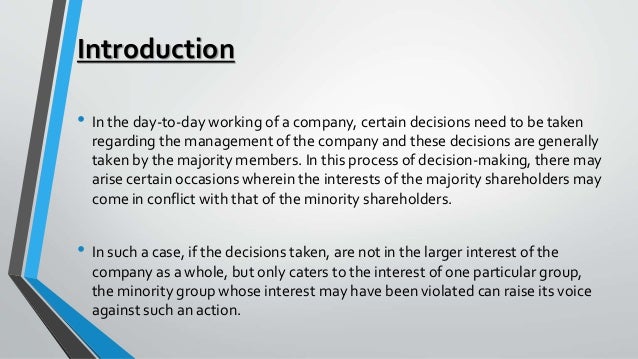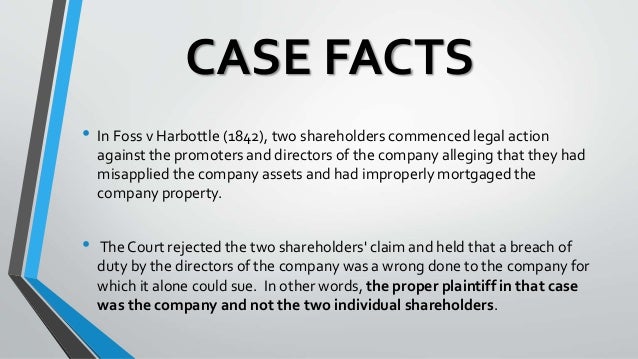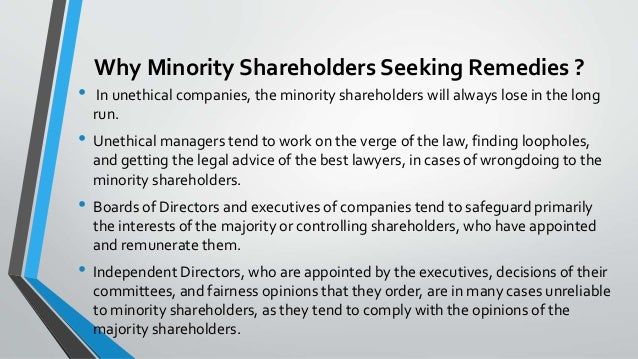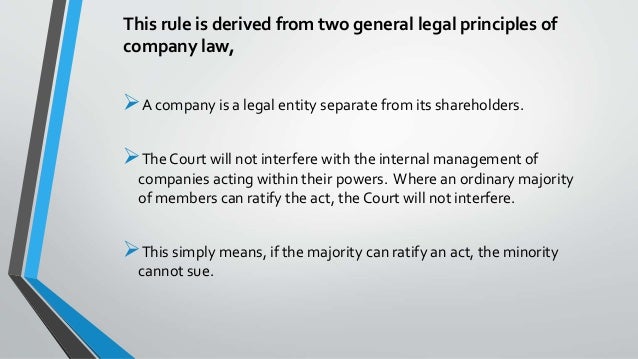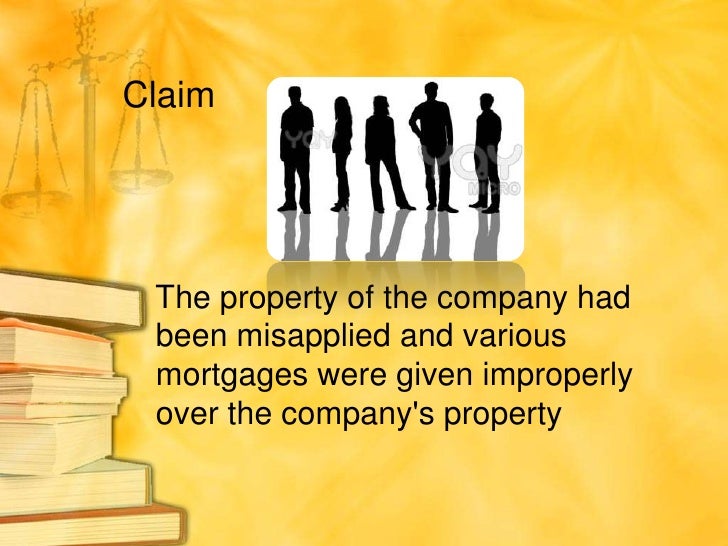Foss V Harbottle Case Summary

67 er 189 is a famous english court decision that became a precedent on corporate law.
Foss v harbottle case summary. 1843 67 er 189 1843 engr 478 1843 2 hare 461 links. Exception to the rule in foss v. In the case at hand the judge recorded that the applicant had invited him to accept a fifth exception relying on a supreme court of western australia decision 7 and an irish high court decision 8 in the former case the court questioned whether a fifth exception to the rule in foss v harbottle existed. In any case in which a wrong is claimed to have been made to a corporation the company itself is the proper complainant.
The rule in foss v. Foss v harbottle case is a leading english precedent in company law. So named in reference to the 1843 case in which the rule was developed. The victorian park company was incorporated by an act of parliament in 1837 to develop ornamental gardens and parks and also to erect housing with attached leisure grounds and then to sell or otherwise dispose of the property.
In any action in which a wrong is alleged to have been done to a company the proper claimant is the company itself and not its individual shareholders. This is known as the foss v harbot. The rule in foss v harbottle provides that individual shareholders have no cause of action in law for any wrongs done to the corporation and that if an action is to be brought in respect of such losses it must be. This is known as the rule in foss v harbottle and the several important exceptions that have been developed are often described as exceptions to the rule in foss v harbottle.
They claimed against three bankrupt directors a proprietor continue reading foss v harbottle. In hercules management the rule was articulated by justice laforest of canada s supreme court as follows. In foss v harbottle 1843 67 er 189 case two shareholders richard foss and edward turton commenced legal action against the promoters and directors of the company alleging that they had misapplied the company assets and had improperly mortgaged the company property thus the property of the company was misapplied and wasted. According to the rule laid down in this case if any loss is suffered by the company by the negligent or fraudulent actions of its members or outsiders then the action can be brought in respect of such losses either by the company itself or by a way of derivative action.
Wigram vc jenkins lj ratio a bill was lodged by two of the proprietors of shares in a company incorporated by act of parliament on their own and the other shareholders behalf. Case study on foss v. Ultra vires and illegal acts. Foss v harbottle 1843 2 hare 461 67 er 189 is a leading english precedent in corporate law in any action in which a wrong is alleged to have been done to a company the proper claimant is the company itself.
In the following cases the rule in foss v. Harbottle does not apply where the act complained of is ultra vires. This is known as the rule in foss v harbottle and the several important.
